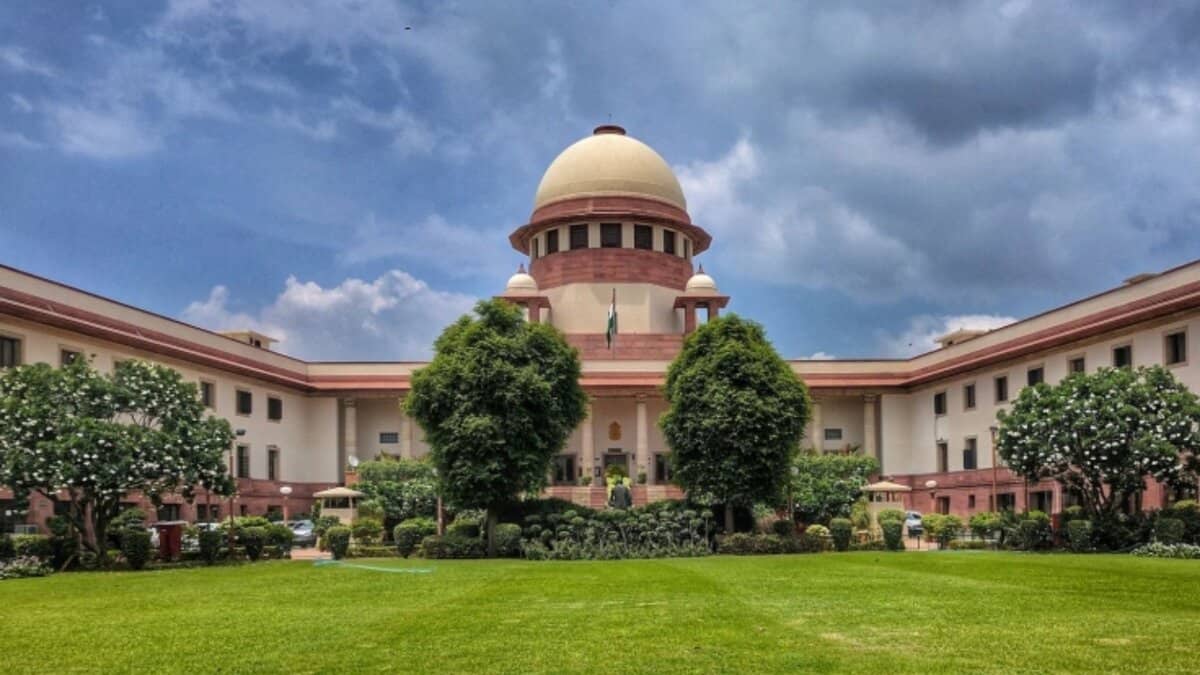
New Delhi: In a significant verdict, the Supreme Court has held that a car driver, who applies sudden brakes on a highway without any warning, can be held negligent in the event of a road accident.
A bench comprising Justices Suddhanshu Dhulia and Aravind Kumar on Tuesday observed that a driver’s abrupt halt in the middle of a highway, even if triggered by a personal emergency, cannot be justified if it endangers other road users.
“On a highway, high speed of vehicles is expected and if a driver intends to stop his vehicle, he has a responsibility to give a warning or signal to other vehicles moving behind on the road,” Justice Dhulia, who wrote the judgement for the bench, said.
The verdict came on a plea of S Mohammed Hakim, an engineering student whose left leg had to be amputated after a road accident in Coimbatore on January 7, 2017.
The incident occurred when Hakim’s motorcycle collided with the rear of a car that had come to an unexpected stop.
As a result, Hakim fell onto the road and was run over by a bus approaching from behind.
The car driver had claimed that he applied brakes suddenly because his pregnant wife experienced a vomiting sensation.
However, the court rejected this explanation, stating, “The explanation given by the car driver for suddenly stopping his car in the middle of a highway is not a reasonable explanation from any angle.”
Holding a car driver as 50 per cent liable in a road accident case, the bench did not agree to his contention that he had suddenly applied the brakes as his wife was pregnant and she had a vomiting sensation.
Allowing his plea for enhancement of compensation, the bench said, “In our view, the concurrent finding that the appellant was definitely negligent in not maintaining a sufficient distance from the vehicle moving ahead and driving the motorcycle without a valid license is correct.”
But at the same time, the bench pointed out, it cannot be ignored that the root cause of the accident is the sudden brakes applied by the car driver.
“The explanation given by the car driver for suddenly stopping his car in the middle of a highway is not a reasonable explanation from any angle,” the bench said.
The court held the appellant as liable for contributory negligence but only to the extent of 20 per cent, while making the car driver and bus driver as liable for negligence to the extent of 50 per cent and 30 per cent respectively.
The court computed the total amount of compensation as Rs 1.14 crore but reduced it by 20 per cent due to contributory negligence by the appellant, to be paid to him by the insurance companies of both the vehicles, within four weeks.
In the case, the Motor Accident Claims Tribunal exonerated the car driver and determined the negligence of the appellant and the bus driver in the ratio of 20:80. It put the contributory negligence of 20 per cent on the appellant for not maintaining a sufficient distance from the car.
The Madras High Court, however, held the car driver and bus driver liable for negligence to the extent of 40 and 30 per cent respectively and made the appellant liable for 30 per cent contributory negligence.


